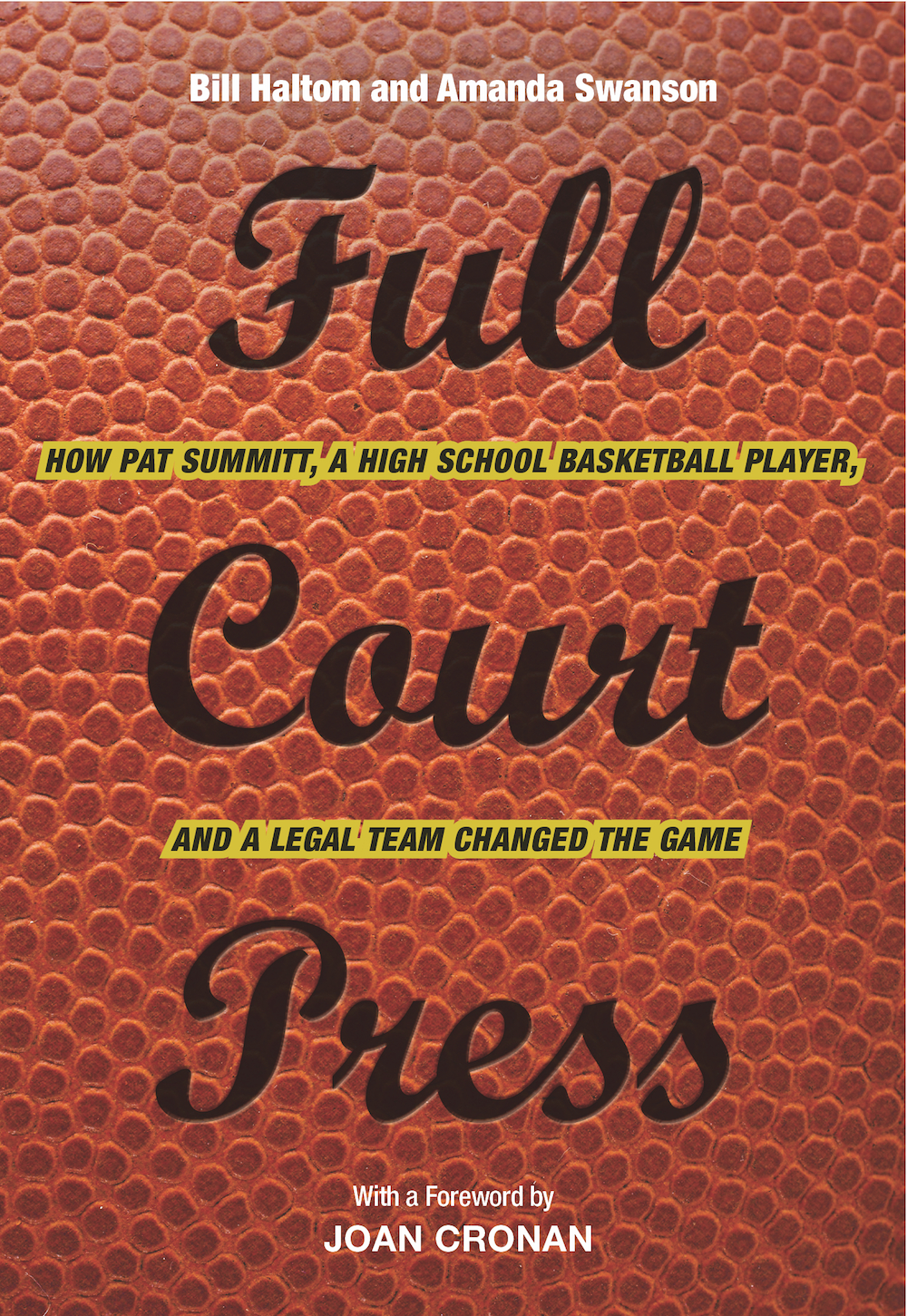"FULL COURT PRESS: HOW PAT SUMMITT, A HIGH SCHOOL BASKETBALL PLAYER AND A LEGAL TEAM CHANGED THE GAME" by Bill Haltom and Amanda Swanson (University of Tennessee Press, 150 pages, $20).
The rule in girls basketball that limited players to half the court - three on offense and three on defense - sounds Victorian. But as Bill Haltom and Amanda Swanson write in "Full Court Press," high-school girls in Tennessee were still playing that atavistic game as recently as 1979. The sport's organizers believed young women couldn't handle the physical exertion of playing on a 94-foot court.
The defenders of basketball's old ways finally lost, not so much in the legal realm as in the court of public opinion, and it's good they did. As everyone now agrees, by allowing high-school girls to play the full-court game, the Tennessee Secondary School Athletic Association helped turn the state's flagship university into a women's basketball juggernaut. But, as Haltom and Swanson tell the story, the TSSAA had to be dragged into that golden future.
The book's subtitle - "How Pat Summit, a High School Basketball Player and a Legal Team Changed the Game" - tells you who the stars of this story are. Summit, the legendary coach of the Lady Vols, might have had a very different career if not for the willingness of an Oak Ridge teenager and her parents to challenge the archaic rule. Victoria Cape was represented by Ann Mostoller and Dorothy Stulberg, two recent graduates from the University of Tennessee College of Law who were eager to challenge discrimination in public institutions.
Cape, 15 in the fall of 1976, simply wanted to play the full-court version of the game. Men had been playing basketball that way for decades, and by 1976 it was played that way by women in most of the country as well. In Cape v. TSSAA, Mostoller and Stulberg relied on two principal tenets: that Cape was personally "injured" by not playing full court and that the TSSAA's use of different rules for girls was gender discrimination. The first point argued that the opportunity to play full court would make it more likely for Cape to earn a basketball scholarship to college. By restricting her to half court, the TSSAA was denying her an avenue for physical development.
The broader argument broached a fundamental Constitutional question: Do separate rules for boys and girls amount to a violation of the 14th Amendment guaranteeing equal protection under the law? In making this claim, Cape's lawyers cited a federal case that rejected any sex-based discrimination that relies on "outmoded images of women as peculiarly delicate and impressionable creatures in need of protection from the rough and tumble of unvarnished humanity."
The TSSAA's defense team had moments when they appeared to fall back on those antediluvian ways of thinking, but for the most part they resisted change because girls basketball in Tennessee was popular and successful, with several high-school programs among the winningest in the country. The coaches themselves, almost entirely male, balked at the prospect of changing their approach to the game.
Readers unfamiliar with the history of the case will be surprised at its halting progress. The appeals process dragged out for years, while attorneys sought a federal investigation into discriminatory policies of the Oak Ridge public-school athletic department. Inequalities between boys and girls programs required that massive changes be made for the schools to remain eligible for government funding. In the background, too, was Title IX, the 1972 law mandating that public institutions eliminate any discrimination "on the basis of sex." Regardless of how the courts ruled in Cape v. TSSAA, in other words, changes were coming to women's athletics.
Still, full-court hoops might have taken several more years to reach Tennessee if it hadn't been for Pat Summit. Her winning program in Knoxville gave her the clout to shape public opinion. When she announced that, "From now on, my recruiting will be from five-on-five systems," the TSSAA responded immediately by adopting the modern game. The prospect of Tennessee's high-school players being shut out of the state's premier college team spurred change much more quickly than any lawsuit could.
"Full Court Press" adds a fascinating facet to the story of Title IX, a law whose consequences continue to reverberate. In Tennessee, the changes didn't happen fast enough to help Victoria Cape, but modernizing basketball affected countless young athletes who came in her wake. Thanks to her and Pat Summit, no Tennessee girl would ever again be stuck in the back court.
For more local book coverage, visit Chapter16.org, an online publication of Humanities Tennessee.


